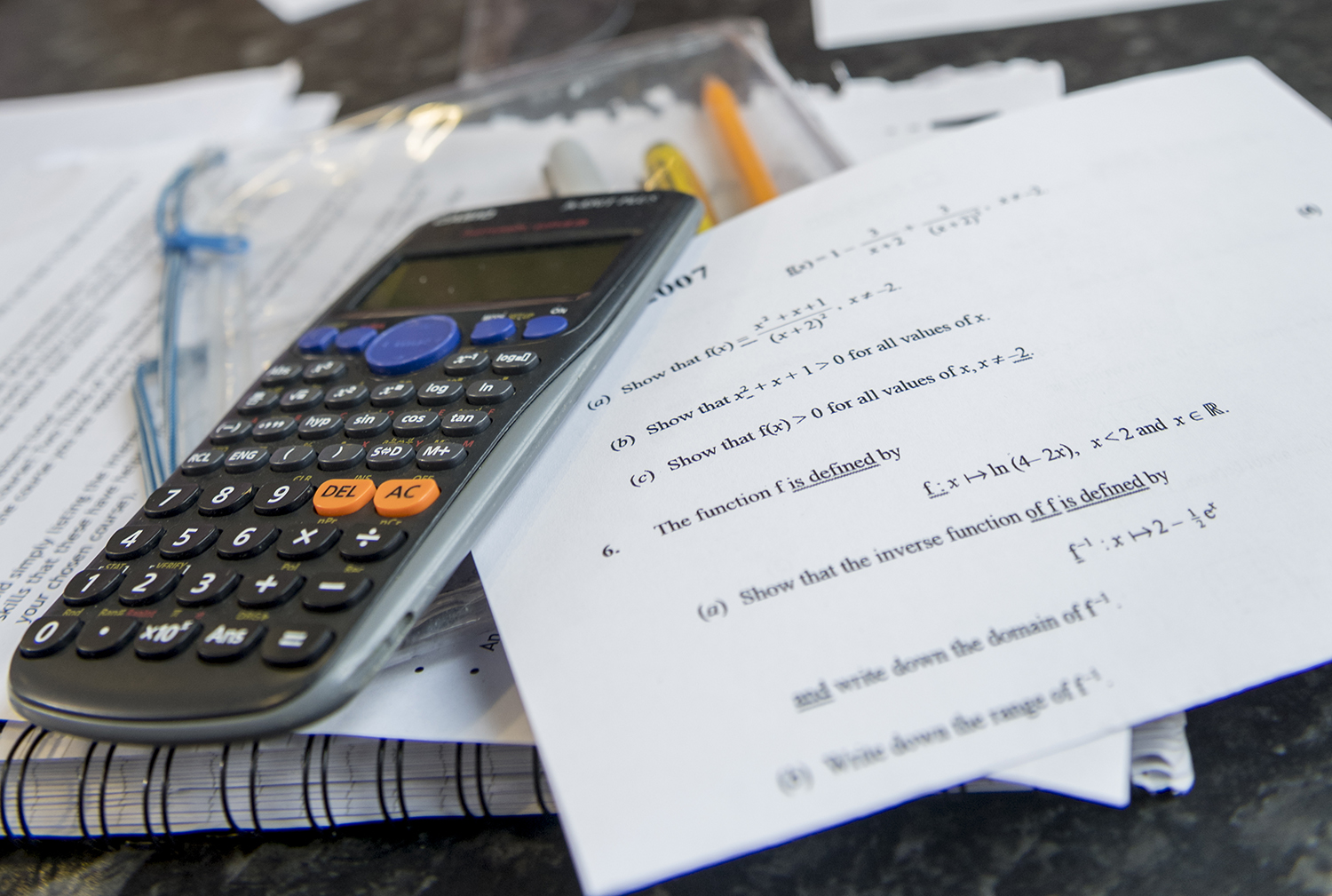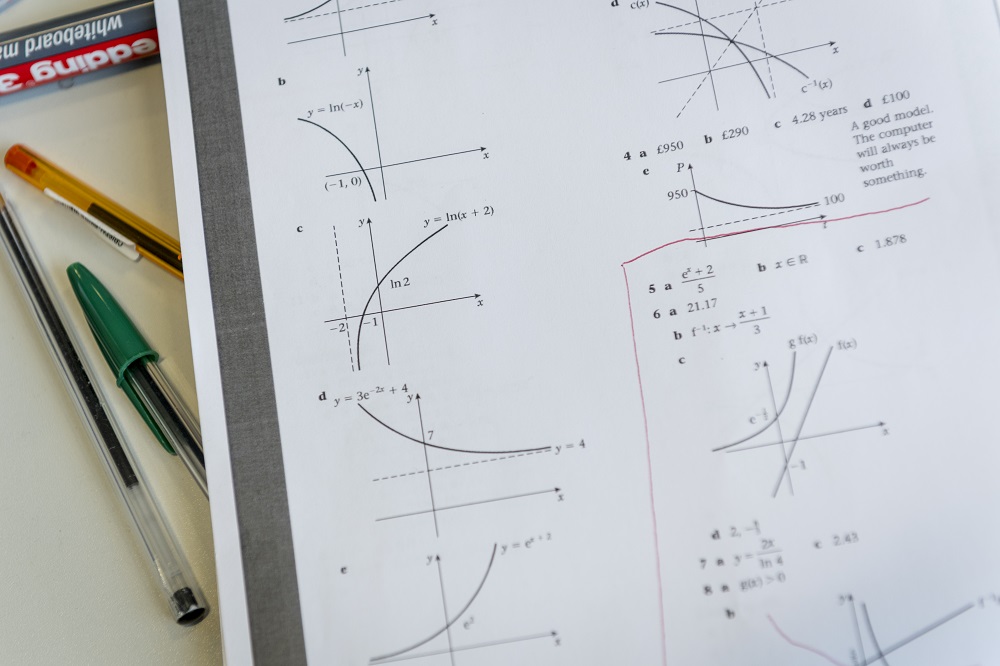Maths
Is Maths important?
Many of humanity’s most important and celebrated achievements are reliant on mathematics. Look around these days to see 300 ton airplanes flying seemingly effortlessly through the air, phones which can triangulate your position anywhere on the globe within a few feet, a multitude of remedies to previously incurable conditions; all of these increasingly vital commodities rely on the use and study of numbers. If you are to stop and think for just a few minutes it becomes inescapably clear that mathematics is pretty well inseparable from life as we know it.
From a less humanitarian viewpoint, a quick look at many of the higher level qualifications leading to the best paid jobs will reveal that a good Mathematical education is frequently a key component. For those students who find Maths very challenging and enjoy this subject less than others, it will provide crucial life skills, even if it will not be studied beyond GCSE level.

Why choose to study this subject at our school?
We have a set of highly skilled specialist Mathematics teachers, who are equally adept at stretching the ablest and supporting those who struggle with Mathematics. Both curriculum and assessments are tailored to students’ needs and extensive support is given all year round to ensure exam success.
Project work, challenges and games are also used to create a wide variety of approaches to lessons. We are proud of the high levels of numeracy our pupils achieve and believe this underpins the academic success of the pupils. Maths and Further Maths are very popular subjects at A-level.
Key Stage 3
In Years 7 and 8, Maths teaching at Silverdale focuses on ensuring that students master key concepts in depth. Pupils learn how to be fluent in the mathematical basics that they will need to access future learning, as well as how to apply these skills to problems presented in a variety of different ways to prepare them for GCSE style questions.
Pupils are taught in ability groups throughout Key Stage 3, all following the National Curriculum. Our emphasis is on enjoying maths through a varied curriculum, whilst ensuring all basic number, algebra, shape and statistical skills are thoroughly addressed. Pupils are assessed each half-term and set changes take place as appropriate.
gcse maths
(EDEXCEL EXAM BOARD)
Between Years 9 and 11, students study the GCSE curriculum. There are two levels of assessment: Foundation and Higher. The highest grade possible on the foundation exam is a 5 (which is equivalent to being halfway between an old grade C and grade B), whereas the higher exam allows access to grades up to 9 (which is higher than the old A* grade). It is worth noting that the new mathematics GCSE is significantly harder than before and therefore a greater proportion of students will be advised to take the foundation level exam (which now allows for a higher top grade than previously).
Sets 1 and 2 focus on the higher GCSE. Set 3 will aim to cover the higher and foundation work in Year 10, then decide on a clearer focus dependent on ability. Set 4 will focus on thefoundation GCSE. The links below show all the units which will be covered at the respective levels.
Pupils study the Edexcel GCSE specification. Pupils are set into four ability groups, with all groups having the opportunity to study for at least a grade 5 at GCSE. The emphasis, again, is on teachers using engaging teaching and learning activities. Pupil progress is closely monitored, with many internal assessment points built into the scheme of work. Pupils sit their external exam at the end of Year 11. A range of revision resources are available in school.

further maths (Level 2 certificate)
In Year 11 those taking the higher maths route are offered the chance to complete an additional qualification - the AQA Level 2 Further Maths certificate. This serves as a stepping stone to A-level and further boosts their GCSE progress as approximately two thirds of the further maths content is an extension of GCSE skills. We are proud of this offer and pupils feel well prepared for A-level study with this additional course.
beyond the classroom
- Lunch-time Nubble club.
- Day trip for KS3 students to compete in the UK Mathematics Team Challenge against other South Yorkshire schools.
- Lunch time support for students all year round, with focussed support for KS4 and KS5 for much of the year outside of lessons.
- Regular Puzzle of the Week competition.
future pathways
Mathematics helps us in all aspects of life, whether it be when we’re out shopping, adapting a recipe or general problem solving, so mathematics will aid all students whatever path they choose to take.
Students who enjoy mathematics can go onto study any of the following courses at university:
- Mathematics.
- Any engineering related course.
- Any science related courses.
- Any business/economics courses.
- Any computing courses.
Numerous students have gone onto study mathematics or a mathematics related degree at highly prestigious universities, with successful admissions to Oxbridge and redbrick universities.
Also many employers favour applicants who have a good mathematics background. Employers generally want to employ people who have shown that they can solve problems and a good maths qualification provides this proof.
